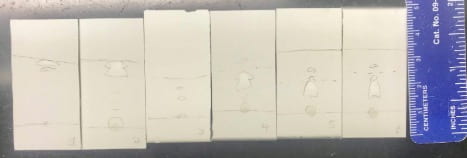Research. Honestly, the thought of it is simultaneously exciting and intimidating. Everyone tells you to get involved as soon as possible, especially when you’re on the path towards medical and graduate school.
But how do you even get involved? When I was a freshman in the honors program this was my main question. It was daunting, all the people I had met just said to email around and ask professors if they had spots open in their labs, to just look around and explore. You might get rejected, but I was told I’d eventually find a place right for me. I was overall lost in the whole process though. I didn’t have any idea of what to do research in and if I was even interested in pursuing it while in college. I only knew that’s what others said I should do.
So when I was scrolling through Handshake and saw a job listing for a student research assistant, I applied. I was nervous, scared I wasn’t going to have the skills needed, and wondering what it would even be like. Little did I know, interviewing for that new position would lead me down a whole new path.
I am now part of the University of Delaware Center of Health Assessment Research and Translation as a research assistant. My main job has been coding, but not in the traditional sense that most people would think of. I go through transcripts of past study groups and apply a codebook to them in a program called “Nvivo”. The goal of my part of this is to find which symptoms correspond and overlap for people with major injuries such as traumatic brain injuries (TBI).
I absolutely love my job and being part of this research project. While going through 70 page transcripts doesn’t sound exciting, being able to read and hear about people’s stories makes the time pass by. Through reading the effects one’s injury has had on their life not only physically but emotionally, I feel like I am learning another side to the story. As a neuroscience major I have learned about the causes and effects and symptoms of certain things like TBI, however, my job allows me to be in someone else’s shoes and see it not just through the eye of a clinician but also a patient.
This was not what I expected research to be like. Honestly, when I was first looking into research I was expecting to be in a lab doing benchwork. But through learning more about clinical research, I have discovered a whole new world that I want to continue being part of. I believe learning more not only about issues medically but also how they affect others in different ways will make me a better doctor and help me on the path towards my future career.
I think that being part of something new and constantly evolving is thrilling. Being involved in research is something I am extremely grateful for and think that everyone should at least try to do once. So I encourage you to gain the courage, take a chance, and email that professor and or apply for the position. You never know how much impact it’ll have on you unless you try.






